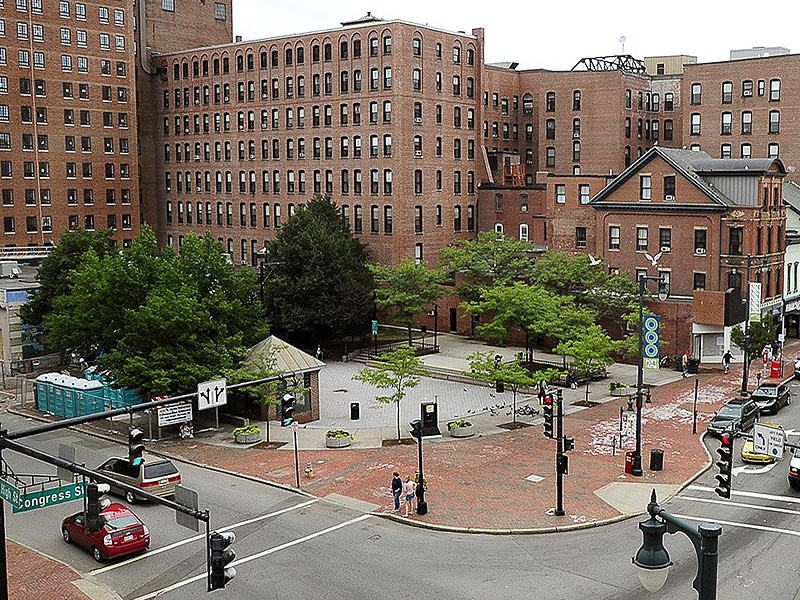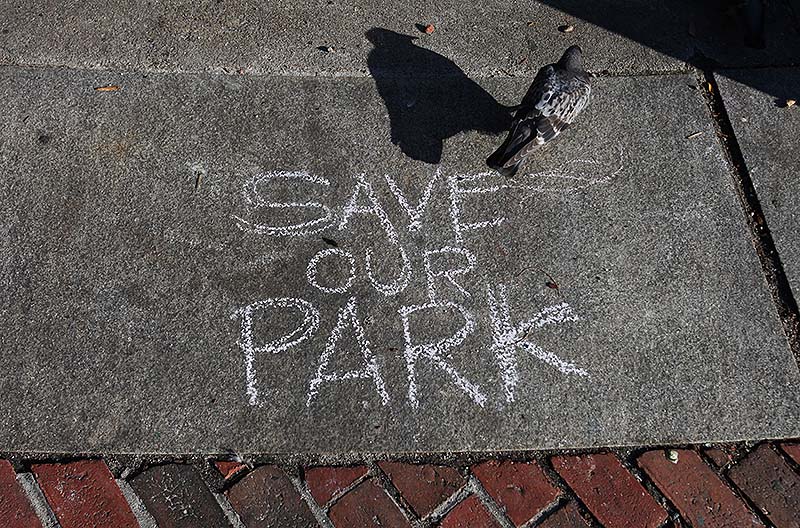Portland voters will decide June 10 whether to enact a citizen-initiated ordinance that would reverse the City Council’s decision to sell two-thirds of Congress Square Plaza, in addition to giving further protection to 34 city-owned parks.
But the council also moved Monday to enact its own, weakened version of the ordinance, which would have no effect on the Congress Square Plaza sale.
The council decided to send its version of the protection ordinance to a workshop later this month, so that it would have time to debate and potentially enact the ordinance by May.
If that schedule holds, the council’s version of the citizen-initiated protection could take effect before the June 10 vote.
The ordinance is part of the council’s response to the petition by the Friends of Congress Square Park, which filed 4,000 signatures in January to bring its measure before the voters.
The petition began when city officials began discussing the sale of two-thirds of Congress Square Plaza to the developer of the adjacent Westin Portland Harborview Hotel, the former Eastland Park Hotel.
The friends group was initially denied the right to petition by the city, but that decision was overturned by a Cumberland County Superior Court judge. The city is appealing that ruling.
Also Monday, councilors met privately for an update by city attorney Danielle West-Chuhta on a federal court ruling that struck down Portland’s ban on panhandling in medians. No action was taken after the session, which West-Chuhta described as a briefing on the city’s legal options regarding the six-month-old ban.
If the council decides to appeal the ruling by U.S. District Judge George Singal, West-Chuhta said, it must file the appeal by March 14.
Last month, Singal ruled that Portland’s ban on loitering and panhandling in street medians is unconstitutional. The ordinance, which took effect in August, prohibits people from sitting or standing in street medians, whether to ask for money or not.
City officials chose not to strictly enforce the ordinance while the lawsuit challenging it was pending. Portland had argued that the ban was a public safety measure to protect motorists and panhandlers.
Send questions/comments to the editors.





Success. Please wait for the page to reload. If the page does not reload within 5 seconds, please refresh the page.
Enter your email and password to access comments.
Hi, to comment on stories you must . This profile is in addition to your subscription and website login.
Already have a commenting profile? .
Invalid username/password.
Please check your email to confirm and complete your registration.
Only subscribers are eligible to post comments. Please subscribe or login first for digital access. Here’s why.
Use the form below to reset your password. When you've submitted your account email, we will send an email with a reset code.